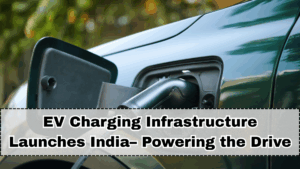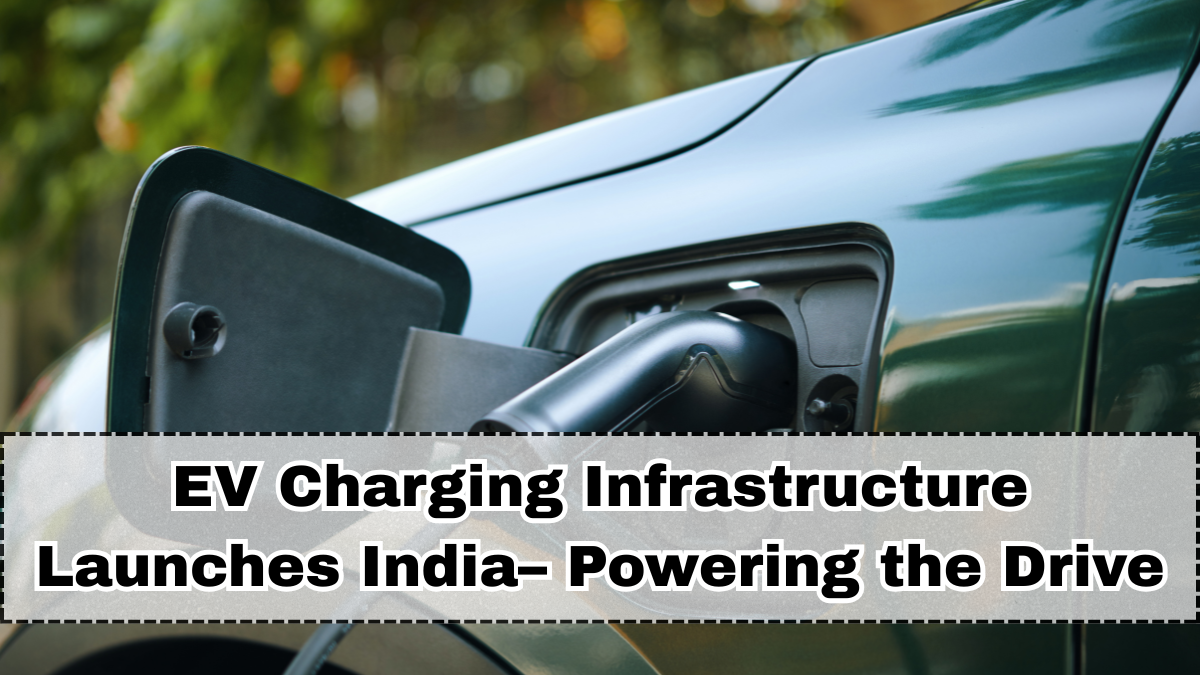India’s electric mobility sector is accelerating faster than ever as New Vehicle-Charging Infrastructure Launches India 2025 introduce large-scale charging networks, next-gen fast chargers, and smarter energy management systems. With EV adoption rising across two-wheelers, cars, and commercial vehicles, buildinga reliable charging ecosystem has become a national priority. In 2025, multiple companies—including automakers, startups, energy firms, and government-backed agencies—will deploy high-speed chargers, battery-ready hubs, and solar-integrated systems across highways, cities, and residential zones.
The push for charging stations is driven by growing EV sales, supportive policies, and demand for convenient long-distance travel. As EV charging station rollout India 2025 gathers momentum, consumers will experience faster charging times, better station availability, and reduced range anxiety. The next wave of charging infrastructure is focused on accessibility, reliability, and grid-optimised power delivery, making EV ownership more practical for millions of Indians.

Major Charging Infrastructure Launches in 2025
1. Tata Power EZ Charge HyperGrid – High-Speed Nationwide Network
Tata Power will roll out HyperGrid stations offering ultra-fast chargers capable of powering EVs up to 80% in under 20 minutes.
Key Highlights:
• Charger speeds: 60 kW to 200 kW
• Locations: Highways, malls, offices
• Features: App-based booking, smart energy routing
USP: India’s biggest ultra-fast charging network
2. Jio-BP Pulse 2025 Expansion – Solar + Grid Hybrid Stations
Jio-BP is preparing hybrid charging hubs powered by both solar and grid supply for improved sustainability.
Key Highlights:
• Solar rooftop support
• Smart load balancing
• High uptime reliability
USP: Most energy-efficient station network
3. Statiq SuperCharge – Community-Friendly Charging Points
Statiq’s 2025 rollout focuses on neighbourhood charging, ensuring stations within 3–5 km in major cities.
Key Highlights:
• Affordable pricing
• Multiple charger types
• 24×7 support
USP: Best daily-use charging network for private EV owners
4. ChargeZone Ultra DC Hubs – Multi-EV Compatibility
ChargeZone will deploy large DC charging hubs capable of supporting cars, buses, and delivery fleets simultaneously.
Key Highlights:
• Fleet-focused design
• Real-time analytics
• Large parking integration
USP: India’s largest fleet-friendly EV hubs
5. Hyundai E-Pit India – Premium Fast-Charging
Hyundai is expected to launch E-Pit premium charging stations inspired by its global model, offering advanced cooling and ultra-fast power delivery.
Key Highlights:
• Ultra-fast liquid-cooled chargers
• Digital payment systems
• Waiting lounges
USP: Premium long-route charging for high-end EVs
Technology Driving 2025 Charging Stations
The new charging infrastructure is more than just plugs—it integrates AI, smart-grid tech, and energy management systems to deliver efficient charging.
Key technologies:
• Dynamic load management
• Cloud-based charger monitoring
• AI-driven power distribution
• Plug-and-charge convenience
• Solar integration for clean power
These tech features ensure maximum uptime, reduced energy waste, and predictable charging performance for all types of EVs.
Cost, Speed & Efficiency Improvements
2025 charging stations will greatly improve user experience through faster charging, straightforward payment systems, and transparent pricing.
Expected improvements:
• Fast charging: 15–30 minutes
• AC charging: 3–6 hours
• Reduced queues due to more chargers
• Subscription plans for regular users
• Mobile app-based booking + route planning
The entry of large energy companies ensures stable pricing and consistent power delivery during peak hours.
Why India Needs Massive Charging Expansion
The surge in EV adoption demands an equally strong infrastructure backbone. Charging networks help reduce range anxiety, support commercial fleets, and ensure smooth intercity travel. As more electric SUVs, sedans, scooters, and trucks launch in 2025, demand for reliable chargers will grow exponentially.
Benefits of the new ecosystem include:
• Improved EV confidence
• Increased long-distance travel feasibility
• Reduced dependence on fossil fuels
• Cleaner, quieter highways
• Better utilisation of renewable energy
India’s push for charging stations supports national sustainability goals while helping cities adopt cleaner mobility systems.
Why 2025 Will Be A Turning Point
With coordinated efforts from government, private companies, and automakers, 2025 marks the year India builds a truly scalable EV charging ecosystem. More stations, faster chargers, and smarter energy systems will make EV ownership seamless for millions of users. This transformation will accelerate India’s transition to a fully electric mobility future.
FAQs
How fast will new charging stations be?
Most fast chargers can charge 60–80% in 15–30 minutes.
Will AC chargers still be available?
Yes, AC chargers will remain available for homes and slower public charging.
Are fast chargers expensive to use?
Prices vary, but many networks offer subscription discounts.
Can all EVs use fast chargers?
Most modern EVs are compatible, but charging speeds may vary by model.
Will rural areas get charging stations?
Initial deployment focuses on metros and highways, gradually expanding to Tier-2 and Tier-3 cities.
Click here to know more.
